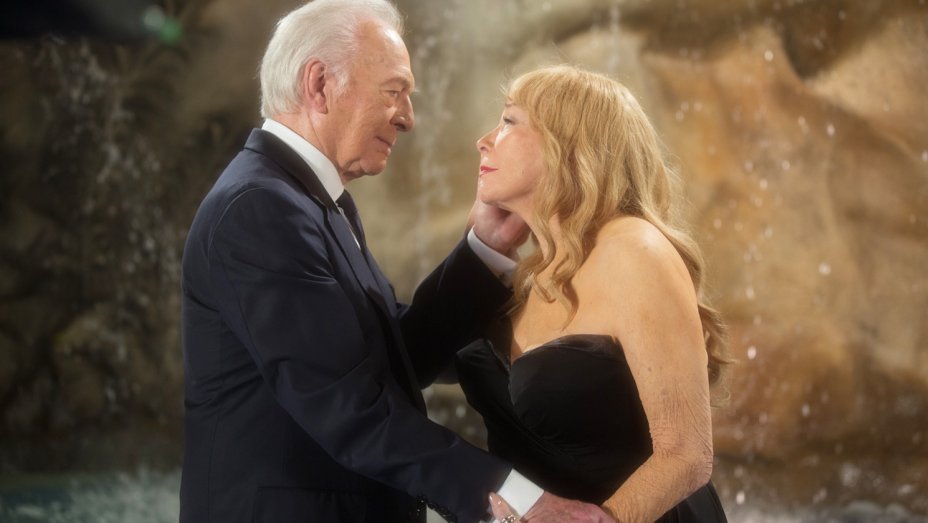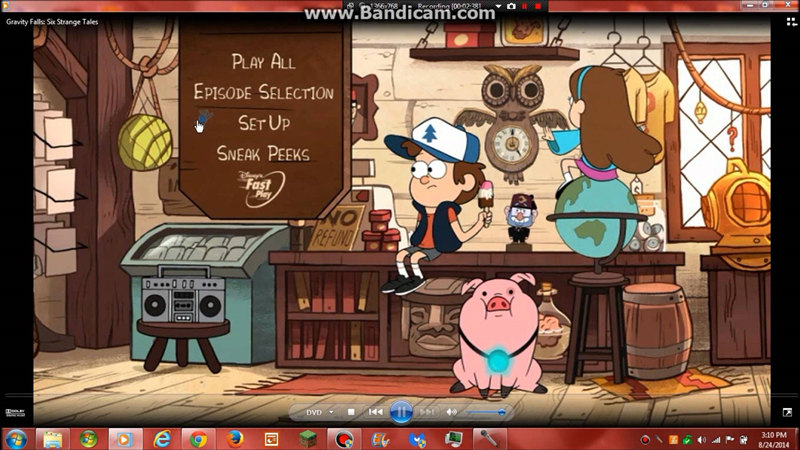In Chinese cinema, the era between the 1960’s and 1970’s was dominated by renowned studios like Shaw Brothers and Golden Harvest with their array of martial arts (kung-fu) films and costume dramas. In the late 80’s and early 90’s, Hong Kong cinema went through a renaissance of sort, with the emergence of Cantonese as the de facto language of choice (replacing Mandarin) and new genres like slapstick comedies, semi-erotic films, supernatural stories and most popular of all, full-blown action crime thrillers. That last genre featured gritty and violent contemporary stories romanticizing triad gangsters and the cops who hunt them. It also heralded the discovery of a new crop of action directors like Tsui Hark, Sammo Hung, Ringo Lam, Johnnie To, Jackie Chan and the amazing fight choreography and wire-work of the legendary Yuen Woo-Ping. Perhaps one of the most influential and visionary directors to emerge from that group is none other than John Woo.
Often cited as a big influence of modern directors like Quentin Tarantino, Robert Rodriguez and the Wachowski brothers, Woo’s movies are most famous for their stylistic gunplay, slow motion action sequences, double pistol-wielding heroes, sunglasses- and trenchcoat-wearing protagonists, guns-in-your-face stand-offs and of course, the famous and symbolic white doves. After a period of glamorizing gangsters in films like “For A Better Tomorrow” and its sequel, plus “The Killer” and “Once a Thief,” John Woo decided to move in a different direction for his next film, “Hard Boiled.” This time, Woo wanted a film that focuses on the good guys instead and as usual, he called upon his most reliable star, Chow Yun-Fat. Believe or not, Chow had collaborated with Woo on all of his so-called triad films and brings with him an element of cockiness and style to whichever role he plays. Like Scorsese and DiCaprio, some directors often produce their best work with certain actors. This Chow Yun-Fat-John Woo collaboration has enabled both men to excel in their work together.
Not many people realize this but “Hard Boiled” is also John Woo’s final made-in-Hong Kong film before the director moved to Hollywood to further pad his already impressive resume. If Tarantino could be credited with reviving John Travolta’s career with “Pulp Fiction,” then John Woo should be recognized for cementing Travolta’s credibility as an action movie star in entertaining movies like “Face/Off” and “Broken Arrow.” By moving to Hollywood, Woo had made the impossible possible by seamlessly melding structured and modern Western filmmaking techniques (as opposed to the free-wheeling Hong Kong moviemaking scene) with his stylized and often violent ballet of flying bullets and bodies.
Chow plays Inspector Tequila, a jazz clarinet-playing cop who is chasing down a dangerous arms smuggling gang. With his partner Benny (Bowie Lam) at his side, Tequila tracks the men to a busy teahouse where a deal is about to go down. However, all hell breaks loose when the cops try to arrest the bad guys. The ensuing shootout in this opening scene carries some of Woo’s signature action style like Chow wielding his double pistols and guys shooting while flinging their bodies across the room from one covered position to another. It even features Chow shooting more than a dozen bullets into two bad guys while sliding down the bannister of a staircase. The final body count is impossibly high (lots of collateral damage) and the violence here is unrelenting and unapologetic. The scene culminates in Benny’s death at the hands of one of the bad guys, who is then summarily executed by Tequila without any hint of remorse.
This violent opening teahouse scene is but a precursor for what is yet to come. Two rival triads are at war over control of the arms smuggling business in Hong Kong, one helmed by the older Uncle Hoi (Kwan Hoi Shan) and the other, headed by a young upstart by the name of Johnny Wong (Anthony Wong). Johnny is a go-for-the-jugular kind of guy and plans to eliminate Hoi’s gang by any means possible. And if that means recruiting Hoi’s right-hand man and enforcer, Tony (Tony Leung), then so be it. However, unbeknownst to almost everyone, Tony is actually an undercover cop and Tequila’s reckless harassment of Johnny only makes his undercover role that much harder to conceal. When ordered by his superior to back off his lone wolf quest to bring Johnny down, Tequila becomes even more determined to go at it alone. Tony must now walk a fine line between making the bad guys think he is a cold-blooded killer and trying not to blow his cover while protecting Tequila from getting killed at the same time. Somehow, these two cops must find a way to communicate and work together to bust Johnny’s violent gang.
Story-wise, “Hard Boiled” went through a lot of growing pains. The original script was dramatically altered several times and the original screenwriter passed away unexpectedly without ever finishing it. Woo eventually started filming without a finished script and you can sense it in the final cut of the film. New characters were added on the fly and some storylines never get off the ground. For example, Tequila’s intimate relationship with fellow inspector Teresa Chang, played by actress Teresa Mo, is hinted in the film but never fleshed out. It just seems jarring to suddenly hear the actors talk about their previous relationship without any background information before that. Also, the Tequila character feels quite one-dimensional, with the film hardly exploring much of the character’s state of mind or motivations. Unlike Tequila’s, Tony’s role is relatively more developed and delves deeply into the emotionally-draining aspects of working undercover for so long. Even Woo’s own brief cameo seems so out of place in the context of the film.
All of these minor issues inflict a toll on the overall storytelling aspect of the film. While “Hard Boiled” may often be recognized by many as a blockbuster action flick, dripping with style and panache, the underdeveloped and patchwork story ultimately gets in the way of wringing the best out of Woo and his two stars, Chow Yun-Fat and Tony Leung. Don’t get me wrong. “Hard Boiled” is still an enjoyable romp to sit through if you are in the mood for some mindless and often riotous gunplay and explosive sequences. If you are looking for a good story to accompany the action, it is better if you look elsewhere.
Video:
Before this Dragon Dynasty release, the only high-definition version of “Hard Boiled” on Blu-ray can only be found as a bonus feature on the Collector’s Edition of the Playstation 3 shooter game, “Stranglehold.” As such, the movie can only be played on a Playstation 3 console and not on any standalone Blu-ray player. “Stranglehold” was billed as the sequel to “Hard Boiled” and an idea for a film version of it was kicked around then but it never came to fruition.
That previous supposedly high-def version of “Hard Boiled” was a horrible mess. It looked like a standard definition (480p) version that was simply upscaled to 1080i. The video was grainy and blocky and never had any textures or any sort of definition to the images. Well, I’m glad to report that this latest Dragon Dynasty version produces a much better video presentation this time around, though not as much as John Woo fans would have hoped for. Coming through in 1080p resolution and preserving its original aspect ratio of 1.85:1, this MPEG4-encoded presentation is inconsistent at best. Some scenes provide good textures and detail while others degenerate into a soft and grainy mess. Although most of the film has been cleaned up, there are some instances of noticeable damage to the print. I am guessing that this is a problem with the source print and can’t be fixed easily.
Audio:
Although not clearly stated on the cover or in the menu itself, “Hard Boiled” features a robust Cantonese DTS-HD Master Audio 5.1 mix that is a better improvement than the video presentation. The soundtrack shows some semblance of depth and range but then again, it is all relative. It certainly won’t blow away any of the newer movie soundtracks but for its age and origin, it sounds great with some aggressive sound design coming through loud and clear. The surround channels and the .1 LFE bass come alive often whenever the action heats up on screen. For English-speaking viewers, you still have to contend with the horrible subtitles, which more often than not, does not really translate what is actually said by the actors. This is a persistent problem that has plagued many Chinese films. Other audio options include English Dolby Digital 5.1, Dolby 2.0 and Cantonese 2.0 tracks. Subtitles are available in English, Spanish and English SDH.
Extras:
The extras accompanying this disc are recycled from the ones that were made available on the 2007 Ultimate Edition DVD version of “Hard Boiled” from Dragon Dynasty. First up is an engaging audio commentary by resident Hong Kong cinema expert, Bey Logan. I have always loved Logan’s commentaries on Dragon Dynasty discs and this one is no different. Logan is at his best when volunteering info about the history of a certain person or location but his own opinions on the more intimate and technical aspects of the film is certainly shaky, considering that he has no access to John Woo himself. Next is “A Baptism of Fire” featurette, which is actually a sit-down interview with John Woo. This interview runs for almost 40 minutes and is quite revealing and very informational. If you really want to know about the history of this film, then you should watch this interview.
Following this, we have three more interviews, one with producer Terence Chang called “Partner In Crime,” one with cast member Philip Chan who plays Tequila’s superior, Superintendent Pang called “Art Imitates Life” and finally, one with another cast member, Kwok Chai (nee Philip Kwok) who plays Mad Dog, Johnny’s enforcer, called “Mad Dog Bites.” These interviews are interesting in their own right but doesn’t come close to John Woo’s. Up next is “Hard Boiled Location Guide” where an unknown but attractive woman takes us through the Hong Kong locations that was used in the film and how they look like now. Then there is a short “Making-of” featurette of the video game “Stranglehold” and two trailers for the film, one for the Hong Kong market and the other for the U.S. market.
Film Value:
While this Dragon Dynasty disc may be the only high-def version (worth mentioning) of “Hard Boiled,” is it really worth the upgrade for those who own other version of the film? There have been other DVD versions from various other companies that contain superior commentary tracks from John Woo and Terence Chang, among others and better subtitles. The high-def video here does not look as good as it should but the audio track is superior and there are some nice extras on this disc. If you are a big fan and can’t wait for a better version, then you should pick this one up. It is not the best but it should tide you over until maybe a better one might come along in the future.


